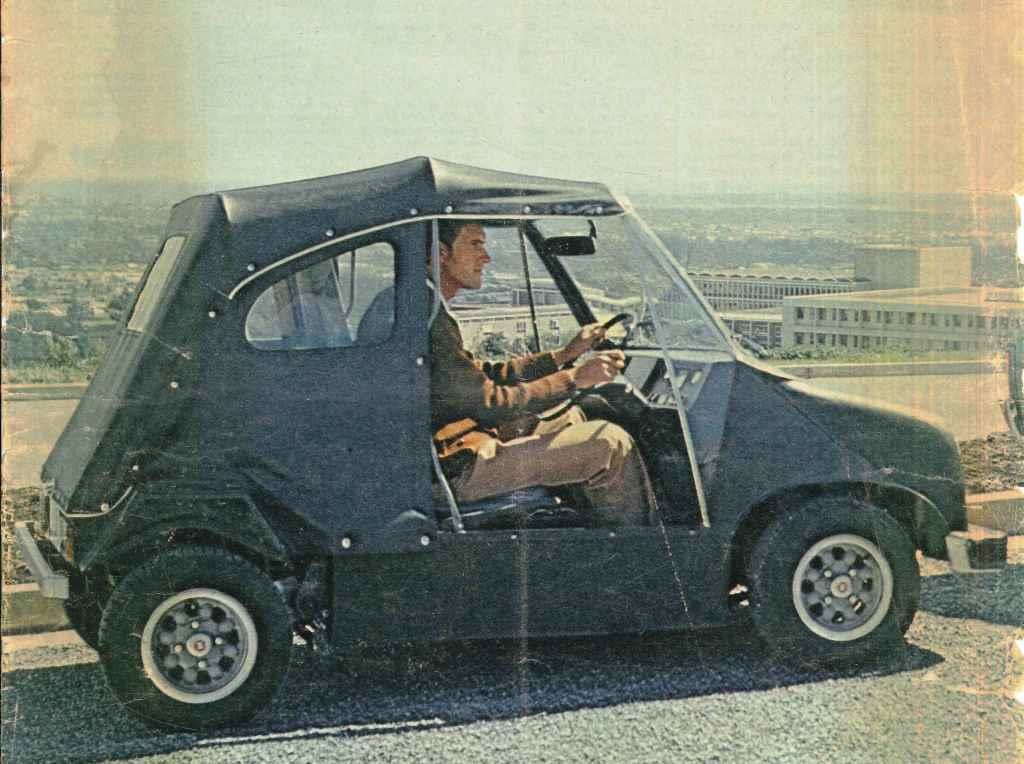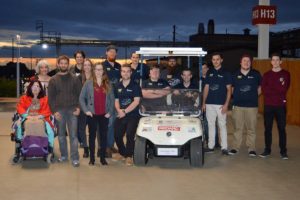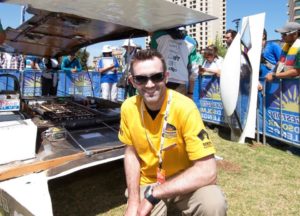
Adelaide will get a sneak peek of the next generation of solar cars to be designed and built at Flinders University at the launch of the 2017 Bridgestone World Solar Challenge in the city.
Adding to a car-building tradition almost as old as the University, the latest working prototype of Flinders’ Investigator Mark III solar electric vehicle will join a special ceremony to mark the 30th anniversary launch of the biennial event at Victoria Square South (from 1pm, Thursday 6 July).
With competitors from around the world, the 50 teams from 26 countries will take solar electric technologies into new frontiers – and the mainstream market. Local teams have been entered by Flinders University, The University of Adelaide and TAFE SA.
Flinders’ first electric vehicle, then called Investigator Mark I (pictured above), was made at Bedford Park in the early 1970s under the guidance of staff auto enthusiasts who led a team of student engineers and other volunteers. The new vehicle is being designed and built with state-of-the art facilities at Flinders at Tonsley, under the roof of the revamped main assembly building previously used previously by Mitsubishi Motors and Chrysler Australia.
Flinders’ inaugural entry in this year’s international solar car challenge incorporates some world-leading technologies as well as in-house developments led by College of Science and Engineering undergraduate and postgraduates.

“We’re at an exciting time in our countdown to the challenge,” says Flinders Automotive Solar Team (FAST) leader Curtis Merrett, a robotics engineering student.
“We’ve got the new chassis and ‘Investigator Mini’ out today, but we are busily in the process of attaching the suspension and other key components.”
The electrical and electronic systems of the solar car, being tested in the golf cart test vehicle, will be incorporated with the body work and solar array.
“We thank Bridgestone and out other sponsors, particularly on behalf of the 30 computer sciences, engineering, IT, business, tourism and all the other students and staff involved in getting the University’s first entry in the solar challenge,” says FAST director Dr Stuart Wildy.
“The project, and its valuable engagement with industry, will support our engineers, software and industrial designers and other professionals in the future,” Dr Wildy says.
The Bridgestone World Solar Challenge is primarily a design competition to discover the world’s most efficient electric car.

The biennial event seeks to inspire some of the brightest young people on the planet to address the imperatives of sustainable transport.
It features three classes that represent the diversity of solar electric vehicles and their differing design philosophies.
Among VIPs at the launch was event director Chris Selwood, Tourism Minister Leon Bignell, event ambassador Jessica Bloom and several representatives from the chief sponsor, including Bridgestone Corporation Senior Vice President and Senior Officer Mr Takashi Tomomoto.
“As you know, this event is designed to steer some of the brilliant young people to address the imperatives of sustainable mobility,” Mr Tomomoto said. “Innovation cannot come from one genius any more,” he said but from collective efforts by team efforts around the world.
This will be seen in the solar electric car challenge, tackling innovative and practical solutions to improve aerodynamics, reduce material weight, energy efficiency, the algorithms for telemetry systems and so on.
“This event is one of the best programs we have in the world today to foster these young collective geniuses which we desperately need in coming years for the sustainable world.”
Bridgestone has aligned its global CSR (corporate social responsibility) activities towards the goal of finding better outcomes for mobility, people and the environment, Mr Tomomoto said.
The 3,000km Bridgestone World Solar Challenge (8-15 October 2017) starts in Darwin and travels the Stuart Highway to Port Augusta and then via Highway 1 to the finish in the Adelaide.
Go to the FAST website and Facebook, Twitter and Instagram.

